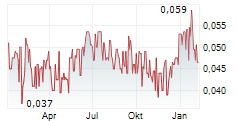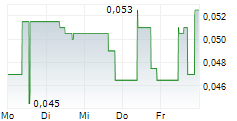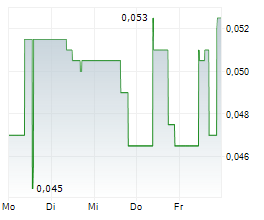Original-Research: Desert Gold Ventures Inc. - from GBC AG
Classification of GBC AG to Desert Gold Ventures Inc.
Balanced Portfolio: Mali Resource Foundation and Côte d'Ivoire Exploration Torque Desert Gold's Tiegba Project in southern Côte d'Ivoire represents a high-impact exploration opportunity in a prolific yet underexplored gold belt. A broad gold-in-soil anomaly ~4 km by 2 km in size has been identified at Tiegba, with soil values ranging from 100 ppb to over 900 ppb (parts per billion), an unusually large, in-situ gold system that has never been drill-tested. This anomaly's scale and strength suggest the potential for a multi-million-ounce discovery, analogous to the big finds made in West Africa over the past decade. Desert Gold Ventures has secured this project and plans an initial low-cost air-core drilling program to test the target, which could quickly confirm whether a significant gold deposit lies beneath. The Tiegba project provides a compelling blue-sky catalyst, a virgin gold target of significant scale in a mining-friendly jurisdiction. Near-term drilling will be the first ever on this anomaly, offering a binary outcome: no discovery (minimal value change) versus a major discovery (value creation that could re-rate the stock by several multiples). The region's history and Côte d'Ivoire's supportive environment increase the odds that success will be rewarded by the market or strategic suitors. The core thesis is that Tiegba could host a large gold deposit given the extensive, high-tenor soil anomaly. Desert Gold's due diligence confirmed the anomaly is real and in-place, covering a continuous area of roughly 4 km by 2 km. Multiple soil samples on a wide grid exceeded 100 ppb Au (up to 940 ppb), indicating an extensive gold system in the bedrock. Such scale at surface is what underpins multi-million ounce targets. Crucially, this anomaly has never been drilled, meaning the project is at the true discovery stage, a successful drill program could instantly redefine Desert Gold's valuation. Tiegba checks many boxes for a major gold system. It lies adjacent to a regional shear zone (the Tahini shear), in Birimian greenstone geology, a setting analogous to other large West African gold deposits. The anomaly itself appears to consist of sub-parallel zones and possibly cross-cutting structures, typical of multi-lode greenstone deposits. Notably, only ~20% of the permit has been covered by soil sampling to date, so the known 4km x 2km anomaly may be just one part of a broader mineralized system. There is also active artisanal mining immediately adjacent (on a small-scale mining cooperative permit), underscoring the local gold endowment. All these factors increase confidence that the first drilling could intercept gold mineralization. As management puts it, "This is precisely the part of the world where you still can make new multi-million ounce discoveries at surface… you can't really do this anywhere else in the world except West Africa, which is precisely why we're here." To appreciate the potential valuation uplift from a discovery at Tiegba, it is instructive to review other West African gold exploration companies' trajectories. Below is a comparison of select companies before and after key gold discoveries or project de-risking events, focusing on scale of discovery, jurisdiction, and how the market (or acquirers) valued them. These comparables highlight that in West Africa, a junior explorer that proves a large gold deposit can achieve valuations in the $200M-$600M+ range, either via market appreciation or acquisition. The valuations per ounce of gold in the ground have varied widely based on grade, location, and gold cycle timing, from under $20/oz (Amara, Gryphon in a bear market) to over $100/oz (Papillon in a competitive takeout). Generally, high-grade or advanced projects (Papillon's Fekola, Roxgold's Yaramoko) commanded higher multiples, whereas lower-grade or early-stage projects (Montage's Koné, Amara's Yaouré in 2016) saw more modest market value. Importantly, Côte d'Ivoire assets have come to the fore: Tietto's Abujar was a standout success, discovered and built in short order, with the market valuing it around A$800M at peak and a major Chinese miner pursuing it. This underscores that investors are willing to reward Ivorian discoveries in the current environment. For Desert Gold, the key takeaway is that a discovery on the order of 1-2 Moz could arguably justify a market cap in the hundreds of millions (especially if grade is decent), given precedent transactions. For instance, if Tiegba yielded even a 1 Moz discovery, one could compare it to Roxgold's early stage or the Karma deposit, valuations in the ~$100-$200M range. A larger 3-5 Moz find would put it in league with Papillon, Cardinal, or Tietto, potentially $300M+ valuations. Naturally, these are speculative figures; the conversion of ounces to market cap is not linear and depends on project specifics. However, the asymmetry is evident: Desert Gold at ~$20M is essentially pricing in no discovery; any substantial success could recalibrate that dramatically. We also note potential for a "takeout premium", several of the comps were ultimately acquired, delivering final premiums of 20% to 50% overnight on top of prior run-ups. If Desert Gold's drilling hits a significant discovery, the company could become an attractive target for mid-tier producers looking to replace reserves in Côte d'Ivoire. Even adjusting for risk, the risk-reward skew is in favor of upside. It is important, however, to remain balanced, not every anomaly becomes a mine, and some peers (especially those with low-grade finds or in tougher markets) did not see such rosy outcomes. On conservative inputs, we estimate Tiegba at about USD 9.5M today within a defensible USD 5.8M to USD 13.1M range. That already represents a multiple of the cash consideration and should step higher as surface anomalies are converted into mineralized bedrock through trenching, air core, and then reverse circulation results. The chained catalysts over the next field seasons can push the probability weighted value toward the top of the range and provide meaningful equity torque. If we add the Mali anchor from the NI 43-101 PEA with after-tax NPV10% of USD 54M to our USD 9.5M view for Côte d'Ivoire, the combined sum of parts is USD 63.5M. With 269,554,099 shares outstanding, that equates to approximately USD 0.24 per share (0.33 CAD / 0.20 EUR). Versus the current share price of USD 0.054, this implies a significant upside. We reiterate our Buy rating. We note that our target price may be conservative given the updated 1.22 Moz resource in Mali. We intend to publish a separate research report on the PEA and to execute a full overhaul of the Mali asset valuation. We will then combine the refreshed Mali view and the Côte d'Ivoire view in a clear sum of parts framework. Even before that deeper work, we see an attractive upside potential at the current level. You can download the research here: 20251013_Desert_Gold_Ventures_Note Contact for questions: GBC AG Halderstraße 27 86150 Augsburg 0821 / 241133 0 research@gbc-ag.de ++++++++++++++++ Offenlegung möglicher Interessenskonflikte nach § 85 WpHG und Art. 20 MAR Beim oben analysierten Unternehmen ist folgender möglicher Interessenkonflikt gegeben: (5a,6a,7,11); Einen Katalog möglicher Interessenkonflikte finden Sie unter: https://www.gbc-ag.de/de/Offenlegung +++++++++++++++ Completion: 10.10.2025 (11:30 a.m.) First distribution: 13.10.2025 (8:00 a.m.) The EQS Distribution Services include Regulatory Announcements, Financial/Corporate News and Press Releases. | ||||||||||||||||||
2211458 13.10.2025 CET/CEST



